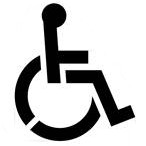County looking to curb foreclosure rate
A house on the 9600 block of Marmot Ridge Circle in Littleton sits vacant June 28 after the residents were forced to move out due to foreclosure. Analysts say houses that are foreclosed upon often drive down the prices of other homes in the nearby vicinity.
A house on the 9600 block of Marmot Ridge Circle in Littleton sits vacant June 28 after the residents were forced to move out due to foreclosure. Analysts say houses that are foreclosed upon often drive down the prices of other homes in the nearby vicinity.
Provided by: Erin Williams
Contributed by: Joseph Kirchmer/YourHub.com
A record number of foreclosures in Douglas County has prompted county officials to step in and attempt to help residents who may be in over their head on a mortgage.
The Douglas County Housing Partnership (DCHP) launched a new program this month aimed at reducing the number of foreclosures in the county. Although Douglas County is one of the wealthiest counties in the nation, it has experienced a considerable spike in its foreclosure rate.
The county recorded 1,200 foreclosures in 2006, which tied it for sixth most in the state with Larimer County, according to Public Trustee Dianne Bailey.
The county has already received close to 900 foreclosure notices through June of this year, which puts it on pace to nearly double the amount of foreclosures from last year, she said. Something needed to be done to help curb those numbers, Bailey said.
“I felt we needed to take some proactive action in trying to help homeowners resolve their foreclosure issues,” she said. “My hope is that we can help educate the homeowner in such a way that they will be able to resolve the current payment on their mortgage.”
She approached the Housing Authority because the public trustees office is not allowed to refer homeowners to banks and lenders.
Craig Maraschky, executive director of the DCHP, said his office can act as a mediator between homeowners who are facing foreclosure and their lenders. Often the goal is to negotiate a deal with a lender that avoids a foreclosure.
“The more we can do to reduce the number of foreclosures in the county, the better it will be for everyone,” he said.
The rising number of foreclosures has given both the county and the state a black eye in recent years. Reports indicate Colorado has consistently ranked near the top or at the top of the nation in terms of foreclosure rates over the course of the last two years.
Much of the problem has to do with loose regulations on mortgage brokers in the state, Maraschky said. Until recently, mortgage brokers weren’t required to be licensed to operate in the state. As a result, some lenders extended questionable adjustable rate mortgages and interest free loans that offer small monthly payments upfront but rise considerably over time.
After a while, homeowners can’t keep up with payments that double or even triple after a year, he said.
That’s not the only reason, however, foreclosures are on the rise.
Travis Anderson, single family programs manager for DCHP, said there are other factors to consider, such as an unexpected job loss or expensive medical bills that aren’t fully covered by health insurance.
But the so-called “predatory lenders” appear to be the primary cause for concern, he said.
“Some people are told they can get into a house for $500 a month and don’t realize it could go up to $1,500 a month in a year,” he said. “But the lenders, in most cases, probably knew those people shouldn’t be in a house that big but they did it anyway.”
The state recently took action against predatory lenders by passing SB 203, which requires brokers to be licensed by the Division of Real Estate and pass a series of tests. Until recently, Colorado was one of only two states that didn’t require brokers to be licensed.
Other bills passed last session require lenders to act in good faith and only extend loans to people who will be able to pay it back.
Anderson said those measures will likely help the problem.
“It should be better now,” he said. “It should get some of the bad guys out of there.”
But there is bound to be a ripple effect from the number of foreclosures in the county on other homeowners. Foreclosures often drive down property values in the neighborhood and slow down appreciation rates on homes, Maraschky said.
“It affects people on both a micro and a macro level,” he said. “On a micro level, it negatively impacts the family and on a macro level, it negatively affects property values.”
For more information on the DCHP, call 303-784-7856.
Read five simple tips to help avoid foreclosure by clicking here.
NUMBER OF FORECLOSURES RECEIVED IN DOUGLAS COUNTY:
1988 – 600
1989 – 557
1990 – 413
1991 – 387
1992 – 254
1993 – 143
1994 – 91
1995 – 77
1996 – 128
1997- 171
1998 – 187
1999 – 181
2000 – 212
2001- 270
2002 – 415
2003 – 652
2004 – 800
2005 – 912
2006 – 1258
2007 foreclosures opened as of June 27 – 866




Recent Comments